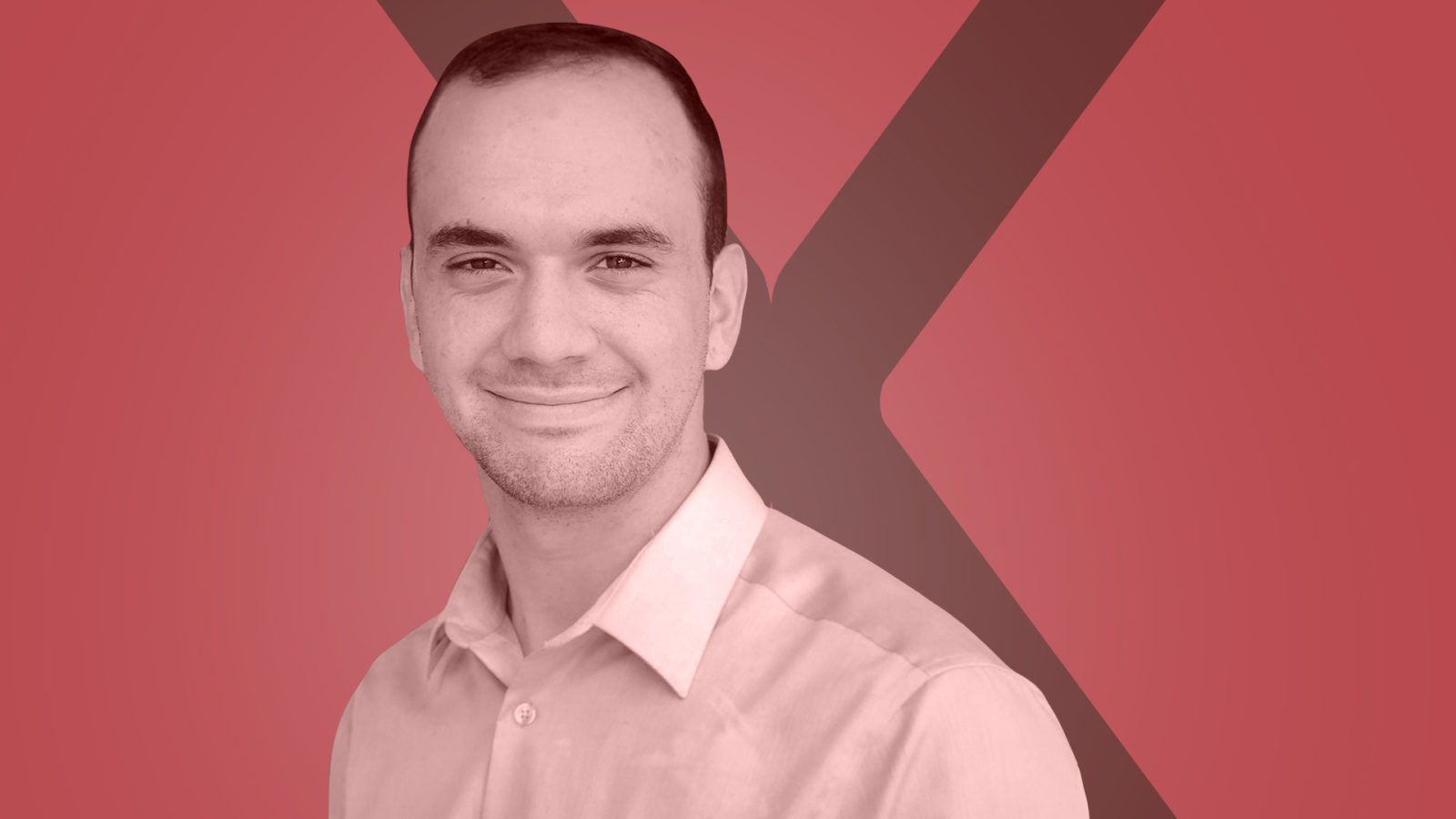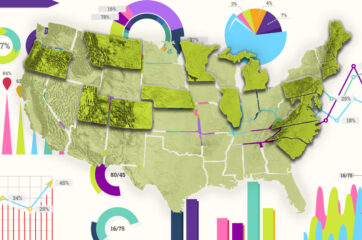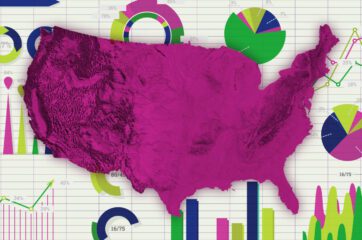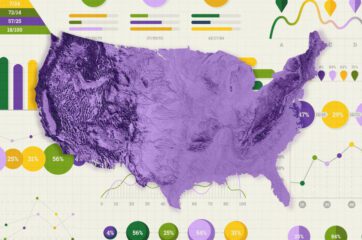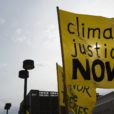Earlier this fall, Jonah Kurman-Faber, who has been a part of our team for almost three years, was promoted to head our research as our new Research Director. We are thrilled to have Jonah taking on this new role, and we took some time to chat with him about what he envisions for the future of his work.
Maria Virginia Olano
Hello!
Jonah Kurman-Faber
Hey Maria.
Maria Virginia Olano
How’s it going?
Jonah Kurman-Faber
It’s going well. It’s nice to talk virtually for the thousandth time since quarantine started.
Maria Virginia Olano
I know I think it’s nice to do some just voice calls from time to time, and I’m really happy that you’re taking the time today. We just want to talk to you about first of all, congratulations about your new role as Research Director here at Climate XChange. How does it feel?
Jonah Kurman-Faber
Thank you. It feels really exciting. I’m very pumped at the opportunity, you know, this year has been a lot for a lot of people and it’s nice to have a few silver linings in my personal life and this is definitely one of them.
Maria Virginia Olano
Absolutely, and we’re very lucky to have you and to keep having you on the team now in more of a leadership role. I’d love it if you start by maybe telling us for those of us who don’t know your journey, from starting at Climate XChange to where you are now.
Jonah Kurman-Faber
Yeah, so my relationship to the environmental movement has gone from a very young age to now. I was raised in a fairly environmentally oriented household. My dad is an environmental sociology professor. We would constantly have these kinds of conversations at the dinner table and I definitely was infused from a young age with a relentless pursuit of knowledge and a passion for the environment, which I think really lends itself relatively well to a Research Director role here. That passion, you know, really took hold mostly in college when I pursued my sociology degree, both undergrad and graduate at Northeastern University. Coming out of that is actually when I started at CXC, while I was finishing that sociology degree. Often my angle was coming in and looking at systems and movements and culture, and that’s really what fascinated me and I thought ‘what better thing to find meaning and impact in the world than fighting climate change?’
And since then it’s been really shaped by the work that I’ve found here that’s been really what pushed me in a new direction. So I came at it with that lens: a relentless pursuit of knowledge, a desire to make change, and an inclination towards systems. That was really interesting to apply to the state work that we do here at Climate XChange because often the state work is focused on the micro. There’s a lot of learning that I had to do in terms of combining, often the ‘armchair sociology’ is what people call it for a reason, you’re just sitting back and your theories aren’t really applied, and putting that into action with advocacy, with organizing, with policy research. That’s where I started to develop my own theory of change. I do believe that everyone who works in the space has their own theory of change and they have their own story and how they got there, and that’s mine. It’s this combination of a young, early passion for environment and for sociology combined with the economics and the numbers and the details of the state work I learned in my professional career so far.
Maria Virginia Olano
Absolutely, and it’s been really exciting. For those people who might not know, we started on the very same day on a very cold day in January of 2018.
Jonah Kurman-Faber
Yes. Yes, 2018 January. I think it’s the 11th. I think you say it’s a different date, but I think it’s the 11th.
Maria Virginia Olano
Either way, it was freezing cold. But it’s been brilliant to kind of see the work and your evolution throughout these years. I’d love to hear, what are some of the highlights or what are some of the things that you are most proud of from your work here at CXC?
Jonah Kurman-Faber
Well, I think there’s a couple. The one that you’re always going to feel the best about when you’re doing research is the end product that you’ve spent months and months on. Some of the projects that we do here, dating back to that first year when we were first getting our feet wet in the space, some of them took up to nine ten months to complete. And that is a really really long time to not feel like you’re having a victory on the work you’re doing every day. So you’re just showing up and you’re building all this knowledge, but you’re not getting the release, that sweet release at the end. So when that moment comes, the release day, the weeks following where you’re getting your feedback, you’re getting the exposure, you’re getting engagement, that’s always the sweet spot. Every time I’ve come out with a report, the weeks following — and sometimes even the years following because you know, those things there they’ll pop up again in ways you never expected and they’ll cross paths with people who reach out — you’ll find all these recurring little sweet tidbits of ‘this did something’ or ‘this changed someone’s opinion’.
Whenever I hear that I have changed someone’s opinion or made someone think of something in a new way, that’s where I get those sweet feedback of endorphins. This is a great validator of having an impact here, so every time we do a report. The other one is definitely speaking events. There’s been times where we’ve had, especially this year, a lot of digital speaking events, but times where there’s a panel or there’s some kind of event where they need someone who’s going to come on and speak about policy, about detail. This is where I’ve really found the most enjoyment in terms of combining my background into sociology and movements and talking about the big picture.
For being a research director, I’m very self-critical of myself in the field I operate in, being very economics heavy, being very dry. To me, I want to constantly throw around the gauntlet to myself, to be way more engaging, to see the big picture, to get to the stuff that matters that people want to talk about. So whenever I have an opportunity to do that through a speaking event — whether that is with a legislator, with an executive branch official, with an environmental leader — I get to have that conversation where I get to infuse all of the knowledge that I put in through the years of work to learn the policy side, but then get to combine it with that desire to talk about systems and movements and have that conversation that’s been incredibly rewarding. The work through the network has been fantastic for that because it’s basically allowed me to unleash not just myself, but the research team’s knowledge and desire to speak about that knowledge to a wide array of people. There’s a lot of self-growth with our speaking abilities and our collaboration abilities when we’ve been able to do that.
Maria Virginia Olano
For sure. I’d love to hear, looking forward to your new role, what are some of the things that you’re excited about? What are some of the things that you’re already working on? As far as you can share with us, your vision for your research with Climate XChange.
Jonah Kurman-Faber
Gosh, there’s so many opportunities this year. The most exciting thing has to be our Build Back Better and green stimulus work. I can’t say enough about the amazing work that the research team has been doing here. I couldn’t do this without them and we’ve been able to do things that I haven’t really seen others do yet in this space, which is to look back at what we learned last time we were in such a recession and what’s different this time around when it comes to technology and what we know about public health and the coming green stimulus moment and then distilling that specifically the state level. That is something that I could never have imagined I’d be working at at this point in time, yet was a product of, again, a silver lining of a really rough year is that out of that despair comes new opportunities, and that’s been a big one. I would throw down the gauntlet right now to say every state, all 50 states, need this kind of research right now. It’s way more than any one individual could fill, so I’m very passionate about that work. I’m very excited about what the green recovery moment is going to do to state politics and I certainly want to play a part in that next year.
Maria Virginia Olano
Absolutely, and this kind of plays into my next question, but I would love to hear a little bit more in detail what that entails, what that means for people who might not be familiar with the green recovery or a green recovery. What are some of the biggest opportunities or windows of impact that you’re seeing as we go into next year?
Jonah Kurman-Faber
Well, this is huge. I’m going to try to not do this in 30 minutes; I want to do it in like three minutes maybe, max, so I’ll say it in two ways. The first is to just forget the numbers and just talk about politics, and how each person has a theory of change. My theory of change, or an essential part that it revolves around, is a need for the environmental movement to come together. It’s extremely fragmented, it’s very very large, it has a lot of people power but it feels all over the place. The name of the game in unifying the environmental movement is around drawing connections between climate policy and everyday life. Climate policy is everything policy. Its public health, it’s infrastructure, congestion, jobs, community resources, everything related to our public and private environment and life has to do with climate. Green recovery is to say, in the subtext of a green recovery policy, to work on something at the nexus of rebuilding America and doing so in a way that’s compatible with the climate, is to say that climate policy is everything policy, right? We need to address all of these other issues that have to do with the antiquated fossil fuel economy as we are rebuilding. And that delivery resonates at the state level because at the state level there isn’t the capacity for the government to think at the scale of climate change, right? They have enough to deal with in terms of budget shortfalls and representing their constituents. So let’s talk in the language of state politics, which is everything together. That’s one reason that green recovery, in my mind, is a very important and opportunistic framing for climate politics across all the states.
The second is the number side. That is to say our literature and the numbers behind just how compelling the transition to renewable energy and clean infrastructure in a clean economy overall has really proliferated in terms of literature. A lot of this has to do with a new wave of economics. Again, I’m very critical of a lot of traditional economists who seem to overemphasize Wall Street, tend to overemphasize rather imperfect models of growth and they don’t see the bigger picture, a more comprehensive view of what a healthy economy looks like, which centers on social well-being and people power.
This is the perfect opportunity to shift to that new wave of economics because there are more jobs to be had in the clean energy economy, there is more labor income to be had, there’s far better health. Our understanding of the relationship between local pollutants and the tail pipes and vents that carbon dioxide comes out of has gotten really good. Every study that comes out, we realize how it’s that much worse for us to continue breathing in these co-pollutants. So bring that into the equation, right? Let’s talk about jobs, health and climate all together.
If you bring those in with models and you speak the language that decision makers speak when they make these decisions, which is ‘put this in dollar terms’, ‘put this in jobs terms’, and draw connections between these things. Show me what projects I need to invest in as a state in order to maximize all these benefits, then it’s the winning formula for states because you’re talking about benefits, you’re talking about green recovery and you’re talking about climate policy all in one. I think the numbers are there in every state, and I think the politics are there in every state for this to be the framing for 2021.
Maria Virginia Olano
Right and with all that being said, and I fully agree with you, this is gaining steam, it’s fully everywhere. I’d love to hear from your perspective, what are some of the remaining obstacles or hurdles getting in the way of actualizing the policy and some of these plans?
Jonah Kurman-Faber
That is a fantastic question that I think is going to go into subjectivity a little bit, but that’s okay. We each have our own theories of change. My theory of change around this stuff and why this has been so hard, particularly at the state level is, again, the consolidation of the movement’s power. This is no secret. This has been well documented, that the oppositional regime, which would include fossil fuel companies, peripheral to fossil fuel companies, related to fossil fuel infrastructure, and vested interest in the current system, has a lot more resources, and they are a lot more organized over the past few decades to influence state policy. State policy is particularly vulnerable to this kind of influence, we still see that to this day. Koch money has fought our initiatives and the bills that I’ve written before.
There are a few ways to counteract that. One is, of course, the capacity of the movement has to increase. We need more and more people power, we need more money and resources funding state campaigns. Then also, the existing power in these states needs to be far more consolidated and refocused. The environmental movement, by the number of organizations registered, over 11,000 in the U.S., is the largest movement in the history of the United States in terms of the sheer number of professionals working in it. Not only do we need more power, but the power needs to be working in lockstep. You’re working on a bill at the state level, there are a lot of different interest groups that come in and out of that bill in terms of support and opposition, and so the approach that you take at the state level needs to bring in all of the interest you can that may benefit from the transition and you need to work together.
This is a failure that happens in a lot of states, and environmental groups have different framings they work with. Are you looking to sunset the fossil fuel industry in your state or are you looking to sunrise or bring up renewables? Are you looking to bring in aspects of the social justice movement and community empowerment or are you operating under a more socio technological-oriented framework for enacting change? In my mind, we have all the solutions we need to do this in a way that’s extremely beneficial to the state at both the government and the community level and it comes down to power and politics. Can groups that support this change, which there is no shortage of in many places, design a bill together? Can you incorporate everyone’s interests together to pass policy in your state? Because if you don’t, the other side is way more organized and ready to delay or kill your approach without that amount of consolidated power from the environmental movement.
Maria Virginia Olano
Yeah, I think that makes a lot of sense, and it’s all that we can hope for moving forward. Two more questions for you. First, do you have any advice or thoughts for people, young or old, who are looking to be engaged in solutions to this climate crisis or looking to get professionally involved in the movement?
Jonah Kurman-Faber
Yes, absolutely. I’ll speak first to those young folks out there who are looking to make this a career, because there are a lot of you. I can feel that energy; I see that energy every day. I am constantly inspired by the organizing and the knowledge of the youth movement, and the best thing I can tell you honestly is to keep pushing forward and to put energy into politics. I think a big distracting factor, or a weaponized approach of the fossil fuel industry, is to frame the climate conversation as one of rugged individualism, you need to minimize your own practices. And while yes, that’s important, that cannot come at the expense of your political power. So that’s my gauntlet as to those looking to get professionally involved in the movement is to, as soon as you can, get involved in organizations that work on building political power for the movement. The way you build political power can vary in a lot of ways. You can contribute to that if you’re passionate about numbers, you can do research, there is no shortage of research needs. There is no shortage of organizing needs. There is no shortage of anything you can think of. Even if you want to do HR work. There is an organization that tackles the issues you care about that needs your position. So do what you want in your career as your passion, but then find an environmental organization, or a government, or some other entity that works on this that has that opening.
The biggest thing I can tell in terms of having an impact is to go state and local. I think a lot of people feel very disenfranchised with federal politics a lot of the time, and I think there is a larger discussion to be had about political reform to make better room for a more inclusive environmental movement. And I’m not saying don’t get involved with federal [politics], but don’t kid yourself that there’s enough people working in state and local politics right now. There is a lot of influence to be had. Especially if you want to get yourself a W, the best chance you’ve got is to go to a scale of jurisdiction where you can see that visible impact. Get involved in your local state, get involved in your local town. There’s policies there that need to be passed.
Maria Virginia Olano
In closing, and I ask this question of everyone, so you might know that it’s coming, but if we are successful, talk to me about what you hope the future you’re working towards looks like.
Jonah Kurman-Faber
I think this is a two-pronged vision of the future, and I love this question, I actually just answered this yesterday, so I got primed for you by accident. But to me, it’s two fold. One, it is a political process that leaves me feeling, and I hope others, that we have a government, whether it be federal, state, or local, that actually reflects the will of its people. Right now, I’m not fully convinced that it does, I think there is a lot more political reform to be done. And I think part of my vision for addressing the climate crisis is recalibrating and reimagining the relationship that we have with our government.
The second part of that is a movement getting incorporated into our policy. Right now, I think there is a lot of domination of numbers in the climate crisis solutions, which is fair. A lot of times we have to take complicated issues and break them down into things we can measure, track, and solve. But to me the climate crisis is so much more than that. To me, you have the political process reimagined, and then you have what I would imagine to be a comprehensive symphony of measures that have been legislated and passed at all levels of government that treat climate policy as everything policy. They hit our goals, but more than that, they treat our goals as more than just a number.
And the last part of that is that I would love to feel inspired by what the government sets out to achieve. My imagination of having success is when I feel inspired by the government.
Maria Virginia Olano
I don’t think we’ve ever had this answer before, so that’s a first, I like that a lot. Jonah, thank you so much for making the time to speak with us today, and again congrats.
Jonah Kurman-Faber
Thank you very much. I’m really looking forward to the work here and I’m sure we’ll have plenty more Zoom and phone conversations through the rest of this year.

